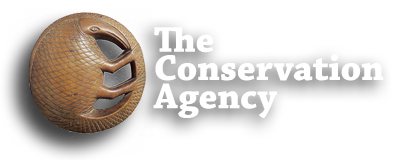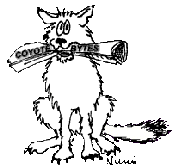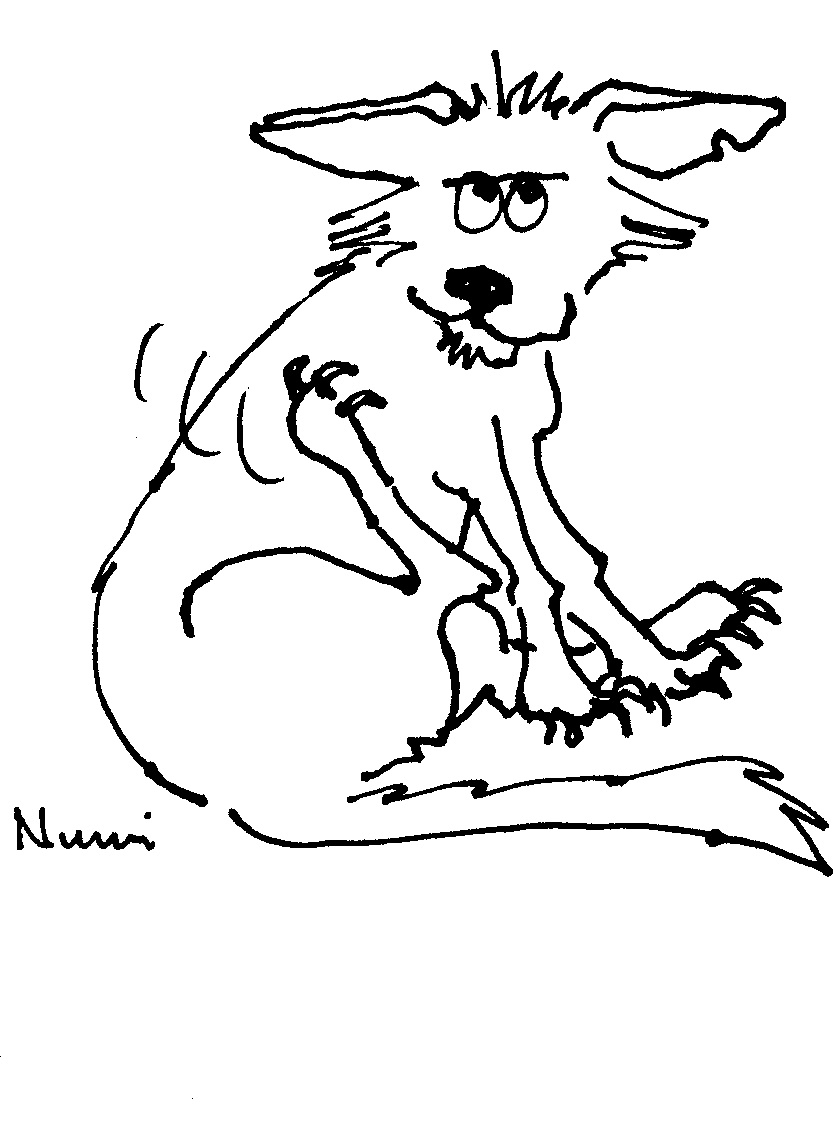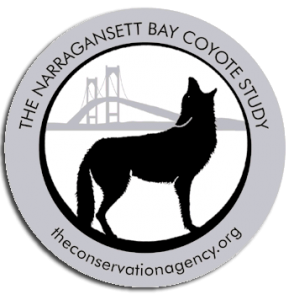 Since 2004 The Narragansett Bay Coyote Study (NBCS) has been developing science-based coexistence and management strategies for our newest top predator. Coyotes, originally a prairie species, have successfully colonized all parts of the continental and nearshore US in the past 100 years. They reached the islands of Narragansett Bay in the mid-1990s. Since then coyotes have become increasingly abundant and problematic in some island communities. In our history of cohabitation with coyotes people have consistently tried to eliminate them by hunting, trapping, and poisoning. Lethal removal works for individual problem animals but does not work as a population control strategy. Why? Coyotes have intrinsic physiological and behavioral abilities to control their own numbers. Their reproductive rate is regulated by the amount of food comptetition with other coyotes. If numbers of coyotes are lethally removed those remaining will respond to the decrease in food competition by increasing reproduction. Coyote populations rapidly rebound. As long as coyotes are well fed their populations will grow.
Since 2004 The Narragansett Bay Coyote Study (NBCS) has been developing science-based coexistence and management strategies for our newest top predator. Coyotes, originally a prairie species, have successfully colonized all parts of the continental and nearshore US in the past 100 years. They reached the islands of Narragansett Bay in the mid-1990s. Since then coyotes have become increasingly abundant and problematic in some island communities. In our history of cohabitation with coyotes people have consistently tried to eliminate them by hunting, trapping, and poisoning. Lethal removal works for individual problem animals but does not work as a population control strategy. Why? Coyotes have intrinsic physiological and behavioral abilities to control their own numbers. Their reproductive rate is regulated by the amount of food comptetition with other coyotes. If numbers of coyotes are lethally removed those remaining will respond to the decrease in food competition by increasing reproduction. Coyote populations rapidly rebound. As long as coyotes are well fed their populations will grow.
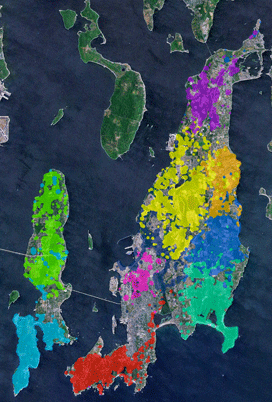
Color coded territories of 10 coyote packs on Conanicut and Aquidneck Islands
It is also known that the opposite effect occurs if coyotes are stressed by food competition. If there are too many coyotes competing for the food available coyotes will drop their own numbers to the level sustainable by those resources.
Understanding this relationship, NBCS scientists decided to study the resource use of coyotes on two islands in Narragansett Bay, Rhode Island. We used GPS tracking collars to find out where the coyotes were spending their time. We theorized that if we could identify important coyote food resources – and control them – the coyotes would bring their own numbers down. NBCS calls this “passive coyote management.”
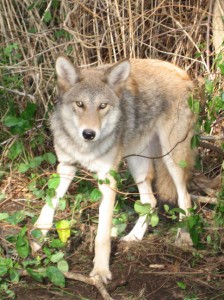 Since 2005 when we trapped and collared our first island coyotes we have continually found that the most important food resources to our study coyotes are provided by people. That means they are within our control. If follows that coyote populations can also be controlled. If we remove anthopogenic resource (human subsidies), coyotes will lower their population to the level sustainable by natural resources. When coyotes are sustained only by natural prey (mice, woodchucks, rabbits, geese, and deer) coyotes numbers will be lower and they will provide helpful pest control services.
Since 2005 when we trapped and collared our first island coyotes we have continually found that the most important food resources to our study coyotes are provided by people. That means they are within our control. If follows that coyote populations can also be controlled. If we remove anthopogenic resource (human subsidies), coyotes will lower their population to the level sustainable by natural resources. When coyotes are sustained only by natural prey (mice, woodchucks, rabbits, geese, and deer) coyotes numbers will be lower and they will provide helpful pest control services.
Based our scientific data NBCS has generated a set of Best Management Practices for Coexistence with Coyotes (CBMPs) – basically a toolbox for safe, sustainable, community coyote management. We are working with the towns in our study area to adopt the CBMPs and be the first community in the nation to successfully and sustainably manage coyotes. We also believe other cities and towns should be able to use our results as a template if they are experiencing coyote problems.
We have only just begun to implement the CBMPs on our islands. One of the most important, however, is the “No Feeding Ordinance” – which prohibits the placing of food or food attractants for coyotes or other non-domestic animals – and is now law in Portsmouth, Middletown, and Newport. We hope in the near future to have all our towns implementing the CBMPs – only then will we see the full impacts they make on coyote numbers and behavioral problems. You can follow our progress on this website.
Who are the people behind NBCS?
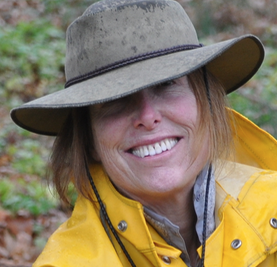 | Numi Mitchell, Ph.D. – Lead Scientist and Project Director (401) 423-0866 numi@theconservationagency.org Numi is a biologist specializing in the study of resource and habitat use by wildlife. She usually troubleshoots endangered species problems – this is her first project in which management issues concern a species that is too successful – an interesting challenge. |
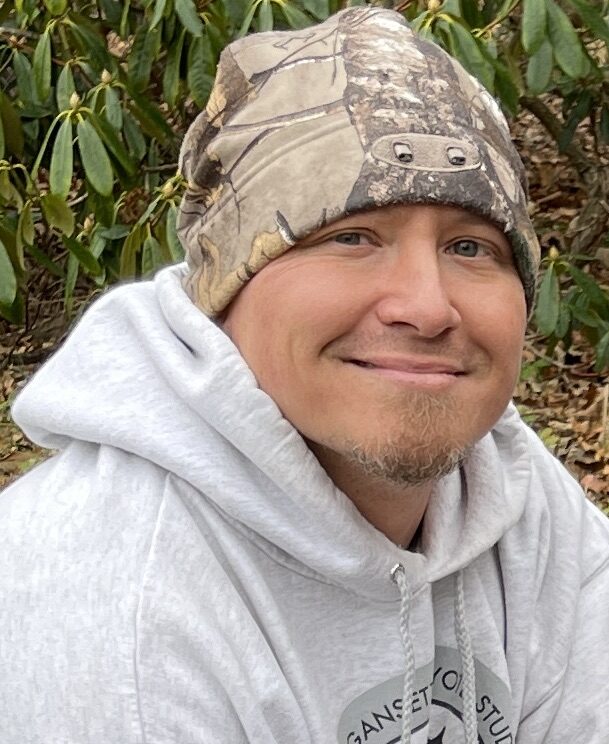 | Kyle Hess – Project Manager (401) 441-8245 kylerichardhess@gmail.com Kyle is dedicated to hands-on protection of biological community diversity by focusing on invasion ecology and restoration of flagship species. With a lifetime love of herps he shifted gears to coyote ecology in 2017-2023, and still keeps his hand in by promoting NBCS sustainable coyote management strategies. |
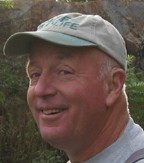 | Spencer Tripp – Professional Wildlife Trapper (503) 669-5040 spencer@theconservationagency.org Spencer is a professional trapper with over 50 years experience with the behavior and habits of fur bearers. He is the National Trappers Association Director for the Rhode Island Trappers Association acting as the liaison between the State and National Agencies. |
 | Ralph Pratt, D.V.M. - Project Veterinarian (401) 397-8887 apratt@wgah.necoxmail.com Ralph took his degree at Tufts School of Veterinary Medicine and has his own practice, the West Greenwich Animal Hospital, which he runs with his wife Amy Pratt, D.V.M. He started his graduate career in wildlife ecology, moved on to veterinary medicine, and has now come full circle as he became Chief Veterinarian for the Narragansett Bay Coyote Study |
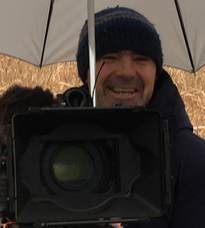 | Rodrigo Fernandez - Project Videographer. (401) 835-0403 ro@andesvisual.com Rodrigo joined NBCS in 2016. He has a talent for capturing coyotes, and other creatures, on film. Rodrigo uses a patient sit and wait strategy - involving coffee and hand-rolled cigarettes - by which he wears them down. Eventually all things wild things tire of hiding because, as long as Rodrigo has supplies, he will not leave. With his subjects comfortable around him Rodrigo scores his amazing shots and crafts his films. |
What are the Coyote Best Management Practices?
NBCS has sample data showing the movements of coyotes around Aquidneck and Conanicut Island (Jamestown). Click on Google Coyotes to see how coyotes move around your neighborhood.
Seen a Coyote? Link to Reports and Sightings Map...
Click for the Coyote Coexistence Guide for Newport County
